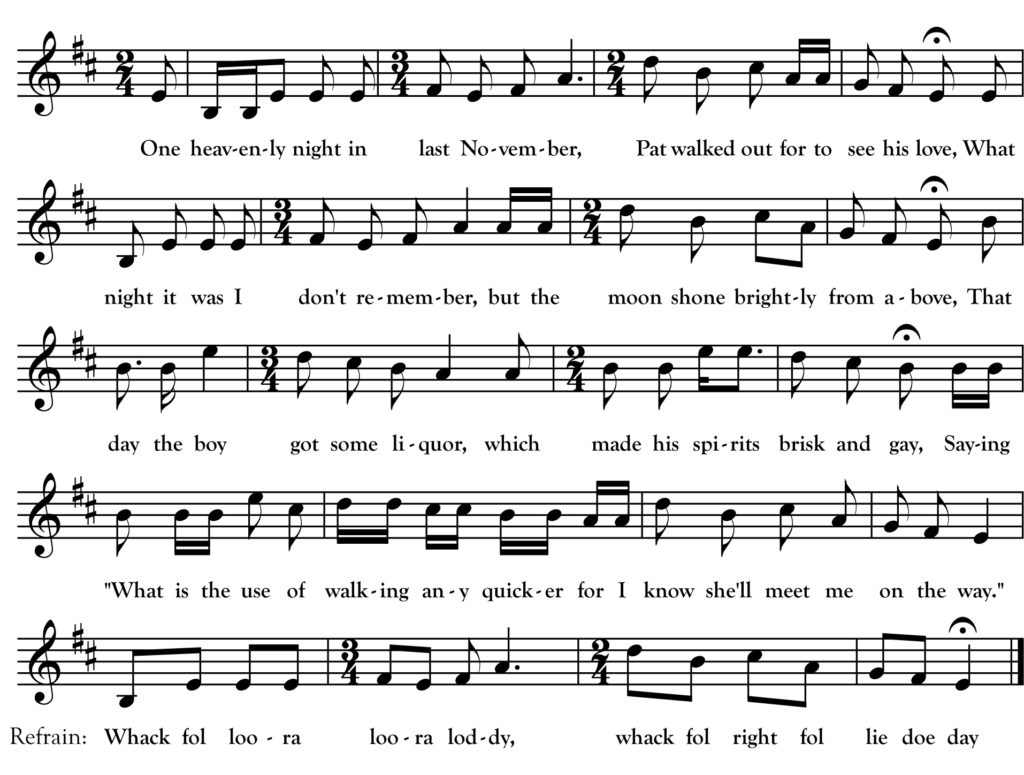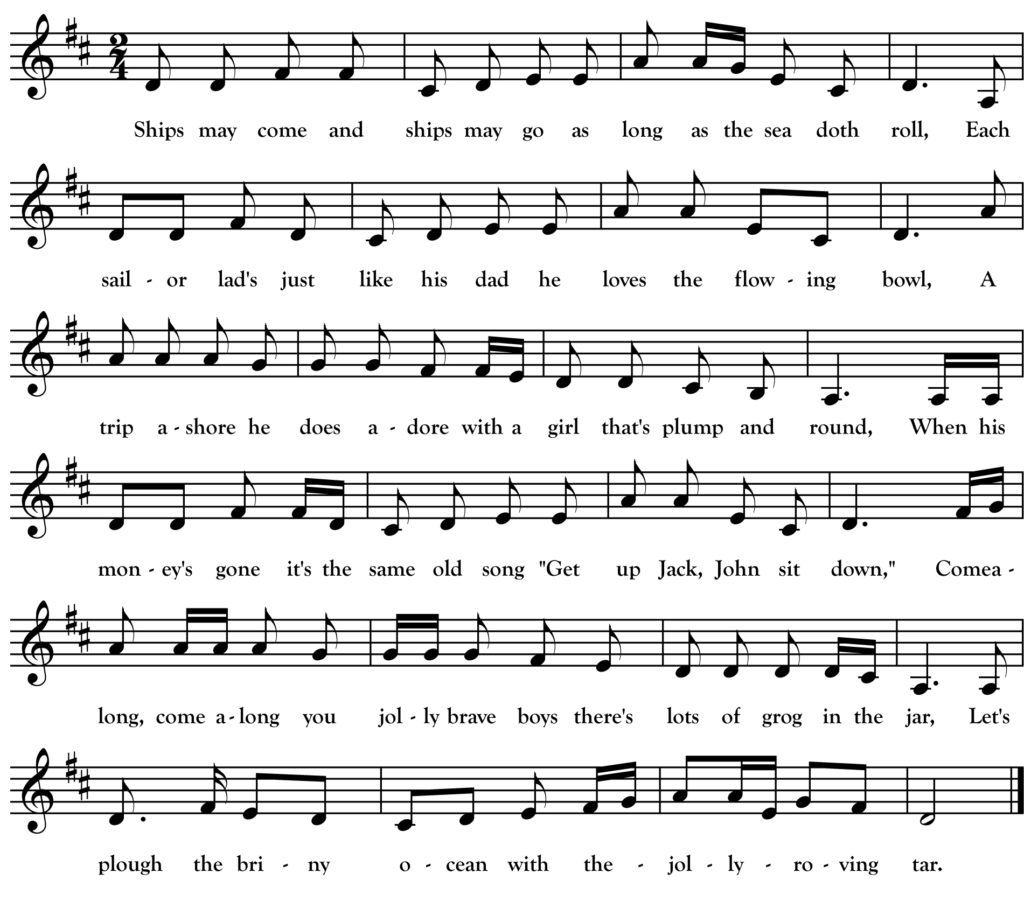Doran’s Ass

One heavenly night in last November, Pat walked out for to see his love,
What night it was I don’t remember, but the moon shone brightly from above,
That day the boy got some liquor, which made his spirits brisk and gay,
Saying, “What is the use of walking any quicker for I know she’ll meet me on the way.”
Whack fol loora loora loddy, whack fol right fol lie doe day.
He tunes his pipe and fell to humming, while gently onward he did jog,
But fatigue and whisky overcome him, so Pat lay down upon the sod,
He was not long without a comrade, and one that could kick up the hay,
For the big jackass he smelt out Paddy, lay down beside him on the way.
He hugged, he smugged this hairy old devil, and threw his hat to worldly cares,
“You’ve come at last, my Biddy darling, but, by me soul, you’re like a bear.”
He laid his hand on the donkey’s nose, just then this beast began to bray,
Pat jumped up and roared out “Murder! Who served me in such a way?”
He took two legs and homeward started, at railroad speed, as fast, I’m sure,
He never stopped his feet or halted until he came to Biddy’s door,
When he got there ’twas almost morning, down on his knees he fell to pray,
Saying, “Let me in my Biddy darling, I’ve met the Devil on the way.”
He told his story mighty civil, while she prepared the whiskey glass,
How he hugged, he smugged, this hairy old devil, “Go way” says she “that’s Doran’s ass!”
“I know it was, my Biddy darling.” And they got married the very next day,
Pat never got back the old straw hat, that the donkey ate up on the way.
We have another comic song this month that was once sung across the north woods region including here in Minnesota where a version was printed by Mike Dean in his 1922 songster The Flying Cloud. Lumberjack singer Charley Bowlen of Black River Falls, Wisconsin also sang a version for collector Helene Stratman-Thomas in 1940. In Ireland, it was printed by Colm Ó Lochlainn in his influential collection Irish Street Ballads.
The melody above is my transcription of a version recorded in the western Catskills by collector Herbert Halpert in 1941. The singer was Walter Wormuth of Peakville, New York who had himself worked in the lumber woods earlier in life. Most versions use a variant of the melody associated with the song “Spanish Lady” and Wormuth’s has a unique twist on that well-worn tune. The above text is primarily Wormuth’s but I borrowed a few lines from Dean and Bowlen here and there.


